5083 0.5mm aluminum plate sheet for marine
5083 0.5mm aluminum plate sheet is a thin, high-strength marine-grade alloy offering excellent corrosion resistance, good weldability, and superior formability. Ideal for shipbuilding, boat decking, marine fittings, and coastal structures, 5083 O/H111 temper in 0.5 mm thickness provides a balance of toughness and workability for marine environments. Available in coils or cut sheets with precise tolerances, it meets common standards such as ISO, ASTM B209 / EN 485. This product page details chemical composition, mechanical properties, temper options, fabrication guidance, surface finishes, and typical applications.
Introduction
5083 is an Al-Mg alloy (5xxx series) widely used in marine and coastal environments due to its excellent resistance to seawater corrosion and stress-corrosion cracking. At 0.5 mm thickness, 5083 plate/sheet is well suited for thin-gauge applications where weight savings, flexibility, and corrosion performance are critical—such as small craft hull panels, trim, decking, and interior components.
Features
- Excellent resistance to seawater and marine atmospheres
- High tensile strength and outstanding toughness, even at sub-zero temperatures
- Good weldability with most common processes (GMAW, GTAW, MIG, TIG)
- Good formability for bending, profiling, and compound forming at thin gauge
- Low density (approx. 2.66 g/cm³) for lightweight constructions
- Available in multiple tempers (O, H111, H32) and surface finishes
- Compatible with marine coatings, anodizing, and adhesive bonding
Typical Applications
- Small boat hull panels and superstructure
- Decking, bulkheads, interiors, and cabinetry on vessels
- Marine fittings and brackets
- Coastal structures and platforms
- Caravan and RV panels where corrosion resistance is required
- Chemical and cryogenic containers (specific tempers)
Product Formats & Supply
- Thickness: 0.5 mm (standard tolerance ±0.03 mm or per customer specification)
- Widths: commonly 1000 mm, 1250 mm, 1500 mm, or cut to size
- Length: coils (for continuous forming) or cut-to-length sheets
- Surface: mill finish, BA (bright annealed), pre-painted (PVDF/FEVE), anodized, or lacquered
- Edge: mill edge, slit edge, or trimmed to custom dimensions
- Packaging: wooden crates, protective film, seaworthy export packing
Chemical Composition (wt%)
| Element | Typical Range (%) |
|---|---|
| Al | Balance |
| Mg | 4.0 – 4.9 |
| Mn | 0.4 – 1.0 |
| Cr | 0.05 – 0.25 |
| Fe | ≤ 0.5 |
| Si | ≤ 0.4 |
| Cu | ≤ 0.1 |
| Zn | ≤ 0.25 |
| Ti | ≤ 0.15 |
| Others | Each ≤ 0.05, Total ≤ 0.15 |
(Note: Composition conforms to typical standards such as ASTM B209 / EN 573; exact certified composition provided on Mill Test Certificate.)
Mechanical Properties — Typical (0.5 mm)
| Property | O (Annealed) | H111 (Strain Hardened) | H32 (Partially Strained + Stabilized) |
|---|---|---|---|
| Tensile Strength, Rm (MPa) | 195 – 250 | 270 – 320 | 300 – 340 |
| Yield Strength, Rp0.2 (MPa) | 35 – 60 | 130 – 170 | 160 – 210 |
| Elongation, A (%) | 12 – 22 | 6 – 12 | 4 – 10 |
| Hardness (HB or HV) | ~30 – 40 | ~50 – 70 | ~60 – 80 |
| Density (g/cm³) | 2.66 | 2.66 | 2.66 |
| Impact Toughness | Excellent, even at low temperature | Very good | Good |
(Values are typical; specific lot certificates provide actual measured values.)
Temper Designations & Effects
| Temper | Description | Effect on Properties |
|---|---|---|
| O | Annealed | Maximum formability, lower strength |
| H111 | Strain hardened, rigid | Moderate strength, good ductility for thin sheets |
| H32 | Strain hardened and stabilized | Higher strength, reduced ductility |
Standards & Compliance
- Chemical and mechanical properties often conform to:
- ASTM B209 (Aluminum and Aluminum-Alloy Sheet and Plate)
- EN 485 / EN 573 (Aluminium and aluminium alloys)
- ISO 6361 (Wrought Aluminium Sheets, Strips and Plates)
- Mill Test Certificate (MTC) available per EN 10204 3.1 / 2.2 as requested
Fabrication & Welding
- Welding: 5083 welds readily with compatible filler alloys (e.g., 5356 for MIG/TIG). Use proper technique to avoid hot cracking.
- Forming: 0.5 mm thickness allows tight bending radii; follow minimum bend radius recommendations depending on temper. O temper supports the tightest radii.
- Cutting: laser, shearing, waterjet, or plasma cutting are suitable. Use clean tooling and edge protection to avoid burrs.
- Surface treatment: degreasing and surface preparation required before painting or adhesive bonding. Anodizing possible with pre-treatment.
- Corrosion note: avoid contact with dissimilar metals (e.g., carbon steel) without isolation to prevent galvanic corrosion; use insulating layers or coatings.
Corrosion Resistance
5083 demonstrates excellent resistance to seawater, salt spray, and coastal environments. Its chromium and magnesium content confers resistance to pitting and stress-corrosion cracking. However, in chloride-rich environments, appropriate coatings and maintenance extend service life. Avoid prolonged contact with copper or its alloys.
Performance at Low Temperatures
5083 maintains good toughness and mechanical properties at sub-zero temperatures, making it suitable for cold-climate marine or cryogenic applications.
Dimensional Tolerances (Typical)
| Dimension | Typical Tolerance |
|---|---|
| Thickness (0.5 mm) | ±0.03 mm |
| Width | ±1.0 – 5.0 mm (dependent on width and mill capability) |
| Length (cut) | ±2 – 5 mm |
| Flatness | Specified per standard or customer requirement |
Surface Finishes
- Mill finish (standard) — smooth metallic finish with light rolling marks
- BA (bright annealed) — improved surface brightness and cleanliness
- Pre-painted (PVDF/FEVE) — for enhanced corrosion protection and color options
- Anodized — for decorative and corrosion-resistant surface
- Protective film — available for scratch protection during handling
Testing & Quality Control
- Chemical analysis (OES or wet chemistry)
- Mechanical testing: tensile, yield, elongation
- Surface inspection: visual & dimensional
- Non-destructive testing (as requested): eddy current, dye-penetrant for critical parts
- Packaging inspection for export-grade shipment
Handling & Storage Recommendations
- Store flat in a dry, ventilated area, off the ground
- Keep protective film on until the final fabrication step
- Avoid stacking with dissimilar metals; use insulating layers if necessary
- Seal edges when exposed to corrosive atmospheres for extended periods
Ordering Information
When ordering, specify:
- Alloy (5083)
- Thickness (0.5 mm)
- Temper (O, H111, H32, etc.)
- Width and length or coil requirement
- Surface finish (mill, BA, pre-painted, anodized)
- Quantity, tolerance class, and any required certifications (MTC EN 10204 3.1)
- Special requirements (edge trim, protective film, packaging)
Frequently Asked Questions (short)
- Is 5083 suitable for hull plating? Yes, especially for small craft and superstructures; thicker gauges are used for primary hull plating on larger vessels.
- Can it be welded? Yes—use proper filler (e.g., 5356) and qualified welding procedures.
- Is 0.5 mm strong enough? For trim, panels, and non-structural components, yes. Structural applications may require thicker gauges.
- How to prevent galvanic corrosion? Use insulating materials, coatings, or sacrificial anodes where dissimilar metals contact seawater.
Related Products
Marine 5086 aluminum plate
5086 Aluminum Plate belongs to the 5xxx series of aluminum-magnesium alloys. Its hallmark is a high magnesium content—generally between 4.0% and 4.9%—which delivers enhanced corrosion resistance, particularly against saltwater and marine atmospheric conditions.
View DetailsMarine 5059 aluminum plate
Marine 5059 Aluminum Plate is distinguished by its high magnesium content and carefully balanced alloying elements, designed to maximize strength without compromising corrosion resistance.
View DetailsMarine 5383 aluminum plate
The 5383 aluminum alloy belongs to the 5xxx series of aluminum-magnesium alloys known for remarkable resistance to marine corrosion and high strength.
View DetailsMarine 5052 aluminum plate
Marine 5052 Aluminum Plate is noted for its exceptional resistance to corrosion caused by seawater, salt spray, and marine atmospheres.
View DetailsMarine heavy duty aluminum plate
Marine Heavy Duty Aluminum Plates Sheets generally refer to thick aluminum alloy plates and heavy gauge sheets produced from marine-grade alloys such as 5083, 5086, 5059, and 5383.
View DetailsMarine 5083 aluminum plate
Marine 5083 Aluminum Plate belongs to the 5xxx series of aluminum-magnesium alloys and is classified as a non-heat-treatable alloy. Its high magnesium content (typically 4.0–4.9%) enhances its corrosion resistance, especially against seawater-related degradation such as pitting and stress corrosion cracking.
View DetailsRelated Blog
5083 marine grade aluminium plate
When it comes to marine construction and applications necessitating optimal performance in corrosive saltwater environments, 5083 marine grade aluminium plate stands out as one of the most reliable and versatile materials.
View DetailsMarine Aluminum Alloy Plate 5052 5083 6061
Marine environments pose extreme challenges—constant exposure to saltwater corrosion, mechanical stresses, and environmental fluctuations demand materials that combine strength, durability, and corrosion resistance.
View Details5083 H111 H112 Aluminium Alloy plate untuk Boat
Temukan keunggulan pelat aluminium 5083 H111 dan H112 untuk aplikasi kapal. Pelajari spesifikasi teknis, sifat kimia, tempering, standar implementasi, serta alasan utama pemilihannya di industri laut.
View DetailsHot Rol 5052 5083 Aluminum Plate Sheet for Boat
When it comes to marine aluminum, hot rolled 5052 and 5083 aluminum plate sheets hold a distinguished place, primarily due to their impeccable blend of strength, corrosion resistance, and formability — factors crucial for boat manufacturing.
View DetailsAluminum Sheet Plate alloy 5083 H111 for boat application
When it comes to manufacturing high-performance boats that demand strength, corrosion resistance, and long-lasting durability, Aluminum Sheet Plate Alloy 5083 H111 stands out as a superior material.
View Details3mm 5083 Marine Grade Aluminum Plate For Ship building
In the demanding world of shipbuilding, materials that combine strength, durability, and corrosion resistance are essential to construct vessels that can withstand harsh marine environments.
View Details

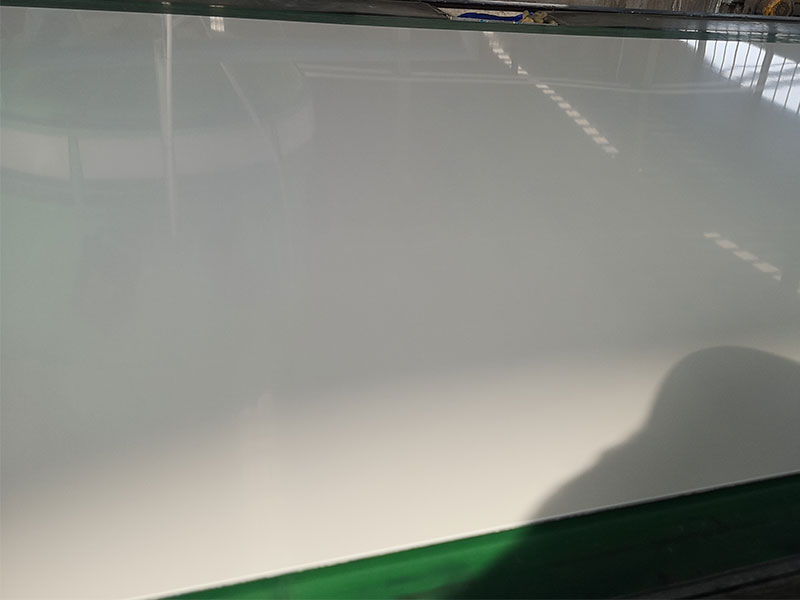
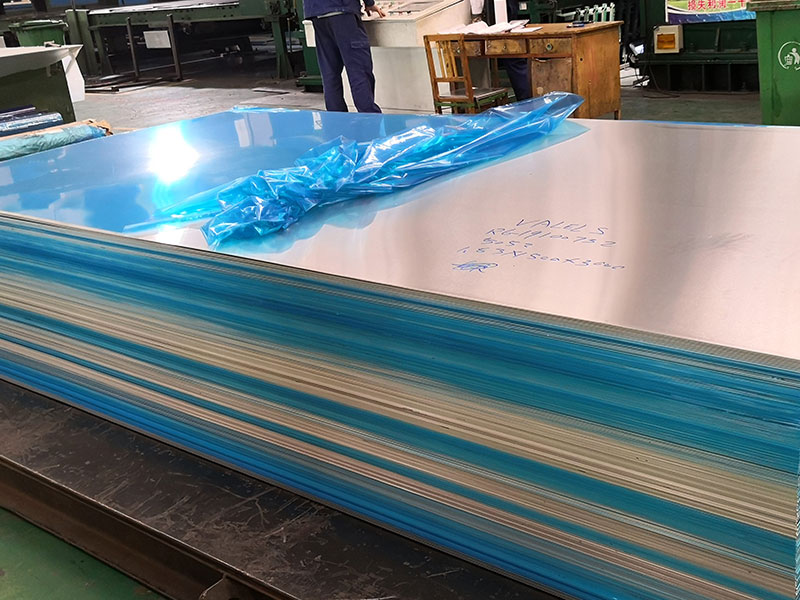
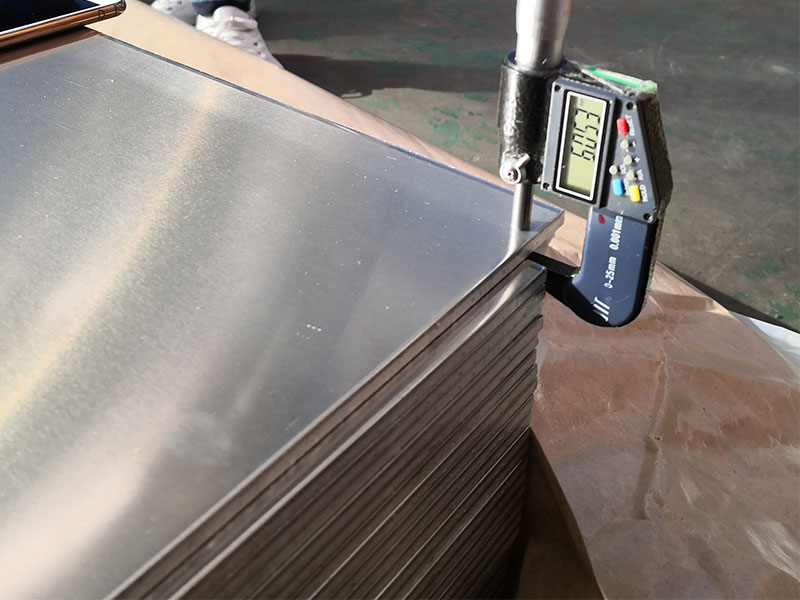
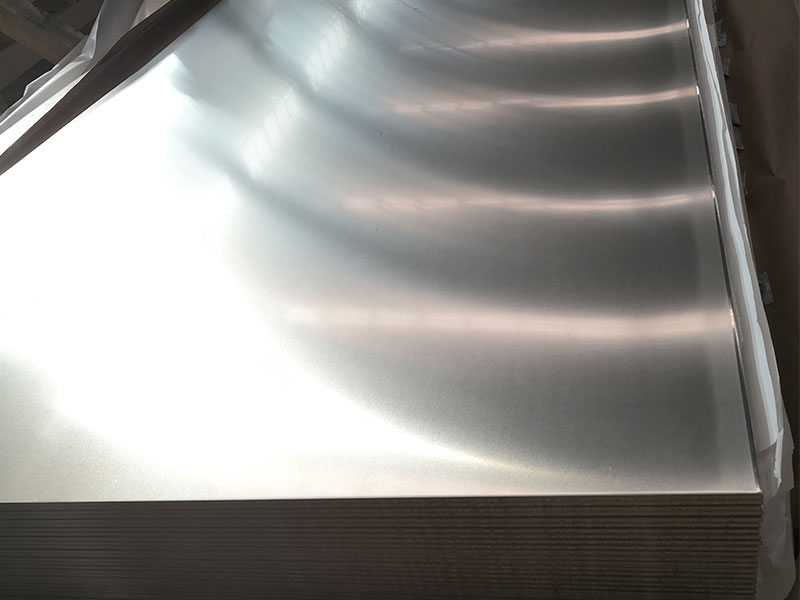
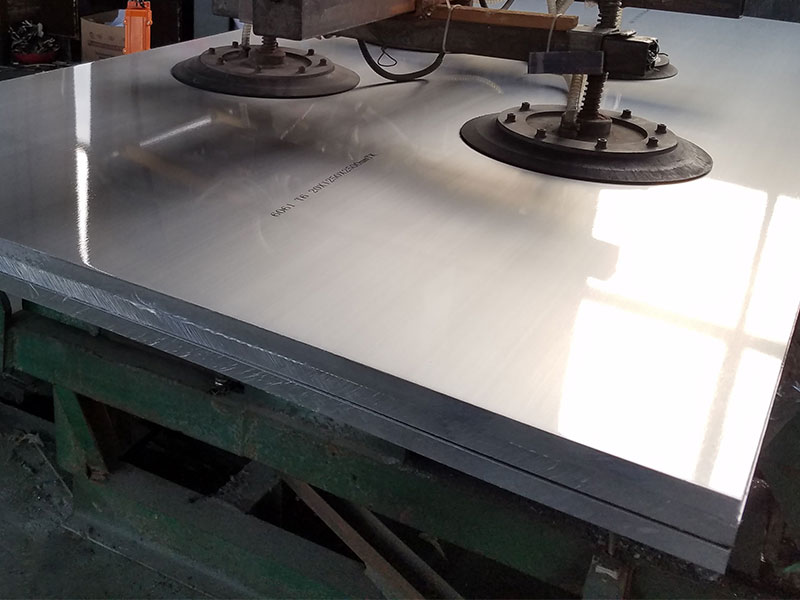
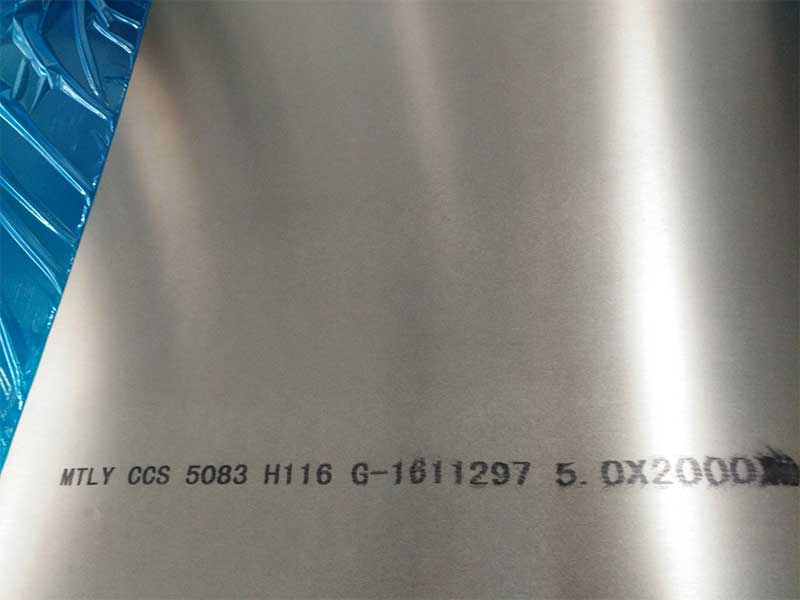







Leave a Message